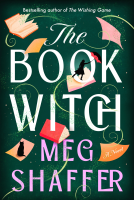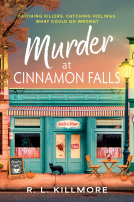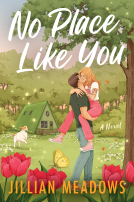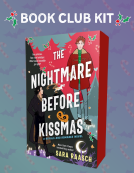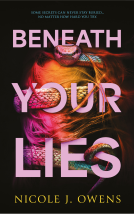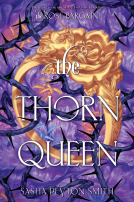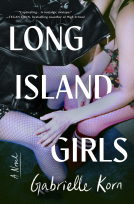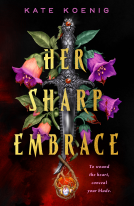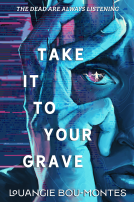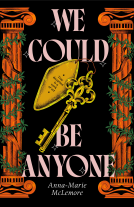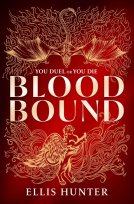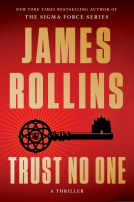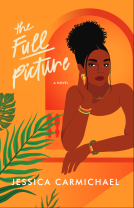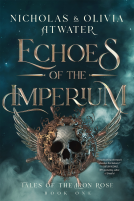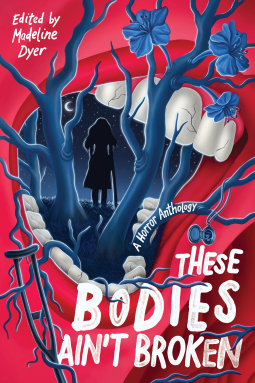
These Bodies Ain’t Broken
by Madeline Dyer
This title was previously available on NetGalley and is now archived.
Send NetGalley books directly to your Kindle or Kindle app
1
To read on a Kindle or Kindle app, please add kindle@netgalley.com as an approved email address to receive files in your Amazon account. Click here for step-by-step instructions.
2
Also find your Kindle email address within your Amazon account, and enter it here.
Pub Date Oct 07 2025 | Archive Date Nov 14 2025
Page Street Publishing | Page Street YA
Talking about this book? Use #TheseBodiesAintBroken #NetGalley. More hashtag tips!
Description
Kirkus Reviews Best Book of 2025
A monstrous transformation within your own body.
A sacrificial imprisonment.
A fight to the death against an ancient evil.
These stories showcase disabled characters winning against all odds.
Outsmarting deadly video games, hunting the predatory monster in the woods, rooting out evil within their community, finding love and revenge with their newly turned vampire friend—this anthology upends expectations of the roles disabled people can play in horror. With visibly and invisibly disabled characters whose illnesses include Ehlers-Danlos syndrome, Crohn’s disease, diabetes, PTSD, and more, each entry also includes a short essay from the author about the conditions portrayed in their stories to further contextualize their characters’ perspectives. From breaking ancient curses to defying death itself, these 13 horror stories cast disabled characters as heroes we can all root for.
Contributors include bestselling and award-winning as well as emerging authors: Dana Mele, Lillie Lainoff, Anandi, Soumi Roy, Fin Leary, S.E. Anderson, K. Ancrum, Pintip Dunn, Lily Meade, Mo Netz, P.H. Low, and Carly Nugent.
Advance Praise
"Reimagining a genre that’s often known for representing characters with disabilities as villains, this horror anthology reveals the power held within disabled bodies. Authentic and broadly diverse representation enhances this uniformly strong collection."—Kirkus Reviews, starred review
"[A]n ambitious horror anthology with a mission [...] This is an easy recommendation for horror fans, especially those eager to finally feel seen in the genre beyond problematic stereotypes."—Booklist
“A brilliant anthology of disabled and chronically ill kids fighting, surviving, and seeking vengeance with sharpened teeth.”—Andrew Joseph White, award-winning and New York Times bestselling author of Compound Fracture
“Bold, terrifying, and beautifully defiant—These Bodies Ain’t Broken proves that real strength comes from resilience.”—Aiden Thomas, author of New York Times bestseller Cemetery Boys
“So proud this book exists!”—Ellen Oh, founding member of WNDB and author of The Colliding Worlds of Mina Lee
“The stories in this anthology blend fear and resilience, featuring unforgettable characters who defy the idea of ‘brokenness’ and redefine what it means to be strong.”—Brenda Drake, New York Times bestselling author of the Library Jumpers series
“A riveting look at the intersectionality between disability and horror.”—Jessica Lewis, author of Bad Witch Burning
“These Bodies Ain’t Broken presents a widely fantastical and nuanced embrace of disability alongside darkness—where, often, the real horror is in how those with different needs are forcibly constrained.”—Wen-yi Lee, award-winning author of The Dark We Know
“A visceral and emotionally satisfying anthology for all horror fans.”—Catherine Yu, author of Direwood, Helga, and The Devil’s in the Dancers
Available Editions
| EDITION | Other Format |
| ISBN | 9798890033024 |
| PRICE | $18.99 (USD) |
| PAGES | 384 |
Available on NetGalley
Average rating from 65 members
Featured Reviews
 Nicole A, Educator
Nicole A, Educator
Thank you Netgalley and Page Street YA for the ARC in exchange for an honest review!
“These Bodies Ain’t Broken” is a bold and refreshing YA horror anthology that unapologetically places disabled and chronically ill teens at the center of the nightmare and shows that survival, resilience, and power come in many forms. With content warnings for each story and thoughtful author notes explaining the depiction of disabilities, the collection is as conscientious as it is chilling.
From battling monsters and ancient evils to confronting ignorance, ableism, and internal fears, these stories stretch across subgenres—ghost tales, body horror, historical horror, and even experimental second-person narratives. While not every story lands perfectly, the range is impressive, and the characters’ voices feel authentic and deeply human. Themes of acceptance, empowerment, and refusing to be underestimated thread through the anthology, with many characters embracing their disabilities as unique strengths in the fight for survival.
One standout opener, “Baby Teeth,” delivers a short but powerful punch, setting the tone for what’s to come: horror that is rooted as much in human prejudice as in supernatural threat. Historical pieces offer a fascinating lens on how invisible disabilities might have been misunderstood—feared, cursed, or explained away—before modern knowledge, adding layers of social commentary to the scares. Ehlers-Danlos Syndrome (EDS) appears in multiple stories, raising awareness while showing the varied ways it can shape, but never define, a character’s life.
While a few experimental approaches (like second-person POV) may not work for every reader, the anthology shines in its emotional range as the stories balance moments of grief and isolation with connection, triumph, and hope. Remarkably for horror, nearly every story ends on a positive or empowering note, with the final tale closing the collection on a strong, satisfying beat.
Overall, “These Bodies Ain’t Broken” doesn’t just add disability representation to horror—it makes it integral. A must-read for anyone looking for diverse voices, fresh takes on the genre, and stories where the heroes’ strengths are inseparable from who they are.
This YA Horror Anthology champions chronically ill and disabled teens. Chronical illness and disability hardly ever have a place in stories, especially horror stories. All of the 13 stories in this anthology centre around a teen and their chronical illness or disability, it's what allows them to overcome odds others wouldn't have been able to.
The cast of authors is also diverse, which is visible in the stories they've written. Baby Teeth, the first story in the anthology, remains my favorite. The body horror is strong in this one. It also definitely sets the tone for the rest of the anthology.
I'd highly recommend this anthology to anyone.
Thank you to Page Street YA for the eArc.
 Dalton M, Reviewer
Dalton M, Reviewer
I thought I knew what I was getting into and it just starts with teeth. The most effective kind of body horror for me at least. That was the only story that had me squirming but the rest of the stories are at least fun or interesting.
Thank you to NetGalley and Page Street Publishing for the opportunity to read this before release.
This read was not only a horror anthology but a lesson on disabilities of all types. I have learned so much about disabilities that I frankly didn’t even know existed. Each story has its own unique way of explaining the feeling of being disabled. It compares the feelings that come with being disabled to horror stories that we are familiar with: curses, supernatural beings, claustrophobia, and more.
This is a very solid anthology. I have had some bad luck with them in the past, with some stories I loved and others I really disliked, but this one has a great amount of really well written stories.
Below I have gathered some quotes and comments I have regarding each story.
Baby teeth:
“From somewhere deep inside me — rather, I could swear it came from the very back of my jaw — I heard a distinct whisper. Yes. More, please.”
“Baby Teeth” starts with a nightmare that I think we all have had at some point: teeth falling out. But, this story is so much more. Bullies get what they deserve in a satisfying albeit grisly manor.
Thy creature:
“The hardest part about coming back to life is remembering how to breathe.”
A modern retelling of Frankenstein, “Thy creature” studies the mortality of bringing someone back from the dead. Is that what they really wanted? Would they want to “live” on as merely pieces of others, no matter how much they might have disliked their body in life? The parallels of Frankenstein’s monster and not feeling like you have control over your disabled body are explored beautifully by the author in this short story.
Us of The Water
“The curse took it from me, the ability to be one of them.”
“Us of the Water” follows a character in which her disability is being manifested as a curse. It highlights the “otherness” that those of us with disabilities often feel. Others do not understand us, therefore we are isolated and treated as if we have a curse. But, there are amazing people out there, who will accept us as we are and help us navigate a world that wasn’t built for us.
House of Hades
“Death is already so big. Why is everything associated with death so big?”
This story highlights how escapism can be an addiction for those of us with depression and disabilities. I can very much relate to the main character in this story. Escapism is why I’m still here, but I also can’t go too deep for my own mental health. We have to confront our past to be able to move on.
I really enjoyed this story.
Kissed by Death
“The memory of Ilana was just like when you pulled a sticker off something. It left its residue behind, and no matter how hard you scrubbed, there were still pieces clinging to the surface, unwilling to let go.”
A vampire love story with a dash of revenge. Explores the “intersection of queerness, trans identity and disability”, according to the author’s note.
A great quote from the author: “You may choose to interpret vampirism as a metaphor for queerness, transness, disability, or vice versa. The real metaphors are the friends we loved and killed for along the way.”
Within the Walls
“You’ve been battling your body for so long, viewing it as an enemy, when all it’s ever tried to do is survive, to rid itself of what it can’t tolerate.”
Okay this one was immediately terrifying for me. Being stuck and/or lost are my top fears! True horror! Especially being in first person.. ahhh!
This really hit home for me. Hating your body and feeling like you are trapped in a loop of pain is very relatable.
The Worst of It
“They’ve made me a monster”
Omg. If you’re claustrophobic in any way, avoid this one. Ahhh! Also if you have any medical trauma, this story probably isn’t for you. I struggled through it for these reasons but it was very well written.
The Weepers and Washer-women of Loch Lomond
“And that’s how I’m alive. Because I’m disabled.”
A mystery about a disabled sister taking part in a kickboxing tournament to discover what happened to her late cousin.
Using a crutch as a weapon… huge fan of that.
When your disability actually saves you.
What This Locket Holds
“Pain. I don’t know life without it.”
This story is about a teen going off to college who feels too smothered by her mother who has regressed since her husband died. Grief can turn you into a monster, literally.
Very eerie and spooky ending. Chills.
When the Night Calls
“The trees loom, their skeletal fingers reaching out as if trying to snatch anyone who dares to wander.”
This story is very poetic and well written. A woman scorned will…. Eat a man’s heart? Heck yeah.
The author’s note mentioned that this story featured a main character with ADHD and looking back onto the story I could really see where that was being utilized.
The Ruins You’ve Made
“You showed that it could be broken. And maybe, next time, they’ll leave enough cracks to let the light in.”
When the college building you move to is plotting your downfall. The building isn’t disability friendly and therefore is figuratively pushing the protagonist out.
The Fig Tree
“The silence felt more like a threat than it did salvation.”
Not gonna lie, this one confused the heck out of me. No clue what is going on.
I did like that the protagonist used their disability to escape certain death!
Ravenous
“Linden imagined her emotions like her blood sugar graph. If she had a sensor for her feelings, it would be a flat line — no ups or downs — an endless stretch of indifference.”
Love the diabetes representation in this story as I do not often see it represented in many stories I read.
Thank you to NetGalley and the publishers for this ARC in exchange for my honest review!
I really enjoy unique horror anthologies like these so I was very excited for this one. Disabled/chronically ill kids are rarely seen as the heroes. A free at the beginning I tuned out a little, but I did enjoy the vastness of the stories and the explanations for the conditions at the end of each one. My favorite stories in the bunch were: The Creature by Lillie Lainoff, The Weepers and Washerwomen of Loch Lomond by Madeline Dyer, When the Night Calls by Soumi Roy, & The Fig Tree by K Ancrum.
So many new authors as well as some I was super glad to see! This was a super fun collection and I can’t wait for more like this!
These bodies ain’t broken – various authors, edited by Madeline Dyer review
Genre: YA horror
Minority rep: disability, POC, LGBTQ+
Thank you Page Street YA for this eARC in exchange for a review.
These bodies ain’t broken is a collection of short stories by 13 disabled authors and all stories thus include a disabled main character. This makes for a collection of amazing and authentic representation of such a diverse minority.
What this book tries to do is break the stigma within horror, that puts disability only on villains and monsters and the people we shouldn’t root for or like. These stories centers disabled characters in a genre that traditionally avoids disability in its protagonists. To do this within the horror genre is quite the challenge and I think these authors nailed it.
My favourite short stories were Thy creature, within the walls, the weepers and washer-women of Loch Lomond and when the night calls. I loved how diverse these stories were and how well disability fit into each story. I think the two stories I found most scary were Baby teeth and within the walls, although they are very different vibes.
To highlight some of the stories, I’d like to talk about the use of the theme of femicide within thy creature and when the night calls. They have very different settings, like when and where in the world they take place, but at the heart is the same issue: women being murdered for being women. I also think I was drawn to these stories because of the high rate of femicide within my country, the Netherlands, and because I believe horror likes to use these systemic issues without always having the best intentions behind it. When reading these stories, I knew these two authors worked femicide into their stories with care and respect. It made the horror more frightening, realistic and alive, without destroying the nuance of femicide, and even adding nuance through culture and disability. I think it all made them incredible stories.
In terms of disability rep, I loved within the walls so much. To preface, I don’t have crohn’s, but I have IBS and this story made me sick to my stomach. It’s so well done with horror and disability. I could only relax when the story ended. This story has done something so clever in displaying disability in horror, I know I’ll be thinking about it for a long time.
If I haven’t convinced you yet to buy this book, I don’t know what could convince you. I loved all of the stories, but gave it 4 stars, just because there are 3 stories with EDS rep and I think it would’ve been a better choice to bring in some more diversity in disability rep as there are 13 stories.
Readers who liked this book also liked:
We Are Bookish
LGBTQIAP+, Romance, Sci Fi & Fantasy
